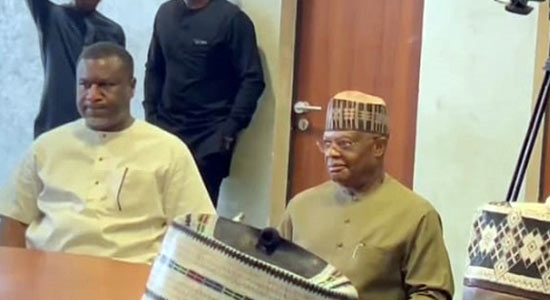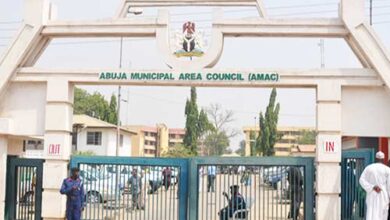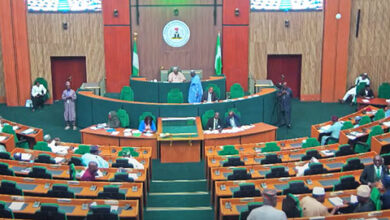Rivers Calm But Still Fragile, Says ‘Unconstitutional’ Ibas As Reps Committee Accepts Apology, Awaits Detailed Briefing

The ‘Unconstitutional’ Sole Administrator of Rivers State, Vice Admiral Ibok-Ete Ibas (Rtd.), has warned that although relative calm has returned to the state, the peace remains fragile and requires careful handling, particularly as the state undergoes a complex political transition.
Speaking on Friday during a long-awaited appearance before the House of Representatives Ad-hoc Committee on the State of Emergency in Rivers State, Ibas emphasized that his earlier absence from scheduled meetings was not an act of disregard but due to the enormous challenges of stabilizing governance in the state.
“Today is exactly ten days after the first invitation, and in between, we’ve had four days that were public holidays, plus the weekends. The absence was not out of disregard, but rather due to the weighty and urgent demands of stabilizing governance in a state under a declared emergency,” Ibas explained.
He acknowledged the delicate nature of the peace currently being enjoyed and reiterated the need for all interventions to be made with sensitivity and precision.
“Rivers State is presently relatively calm, but still fragile,” he warned.
Ibas, who assured the lawmakers of his full cooperation, pleaded for additional time to adequately prepare and present a detailed and constructive report on the state’s current situation.
“I only request your understanding and the indulgence of this committee to grant me additional time to adequately prepare and present a comprehensive and constructive briefing,” he said.
He stressed the importance of ensuring that any engagement with the committee is “done with the depth, accuracy, and clarity it rightfully deserves.”
The meeting was presided over by the Chairman of the Ad-hoc Committee and House Leader, Prof. Julius Ihonvbere, who underscored the constitutional authority of the National Assembly in overseeing a declared state of emergency.
“For that state of emergency, the gazette must be sent to the National Assembly for approval. It’s only that approval that gives life to the state of emergency,” Ihonvbere said.
Citing Section 305 and Section 11(4) of the 1999 Constitution (as amended), Ihonvbere reminded the administrator that the legislative powers of the state assembly are now under the control of the National Assembly.
“That also means that all functions of the State House of Assembly, including budget approval, must come to the National Assembly and, by implication, this very committee,” he clarified.
Ihonvbere revealed that the committee had made multiple attempts, including written correspondence, to engage the administrator. He expressed relief that Ibas finally honored the invitation.
He assured Ibas that the committee members were selected with broad geopolitical representation and deep legislative experience, and encouraged a spirit of cooperation moving forward.
Meanwhile, the committee officially accepted the apology tendered by Ibas for his earlier absence. In a formal statement issued after the session, the committee described his apology as a gesture of respect and responsibility.
“In line with the House’s tradition of fairness, the apology was magnanimously accepted,” the statement read.
It was also confirmed that Ibas had submitted a letter of apology the night before the meeting and used the session to reaffirm his respect for the National Assembly and its oversight mandate.
The committee resolved to reconvene at a later date, which will be communicated in due course for a more substantive engagement with the administrator.
“The Committee reiterates its commitment to discharging its constitutional mandate under Sections 11(4) and 88 of the 1999 Constitution (as amended) with diligence, impartiality, and in the best interest of democratic governance and national stability,” Ihonvbere said.
He also emphasized the importance of stakeholder cooperation and reaffirmed that the committee remains open to constructive dialogue aimed at upholding accountability and the rule of law in Rivers State.





